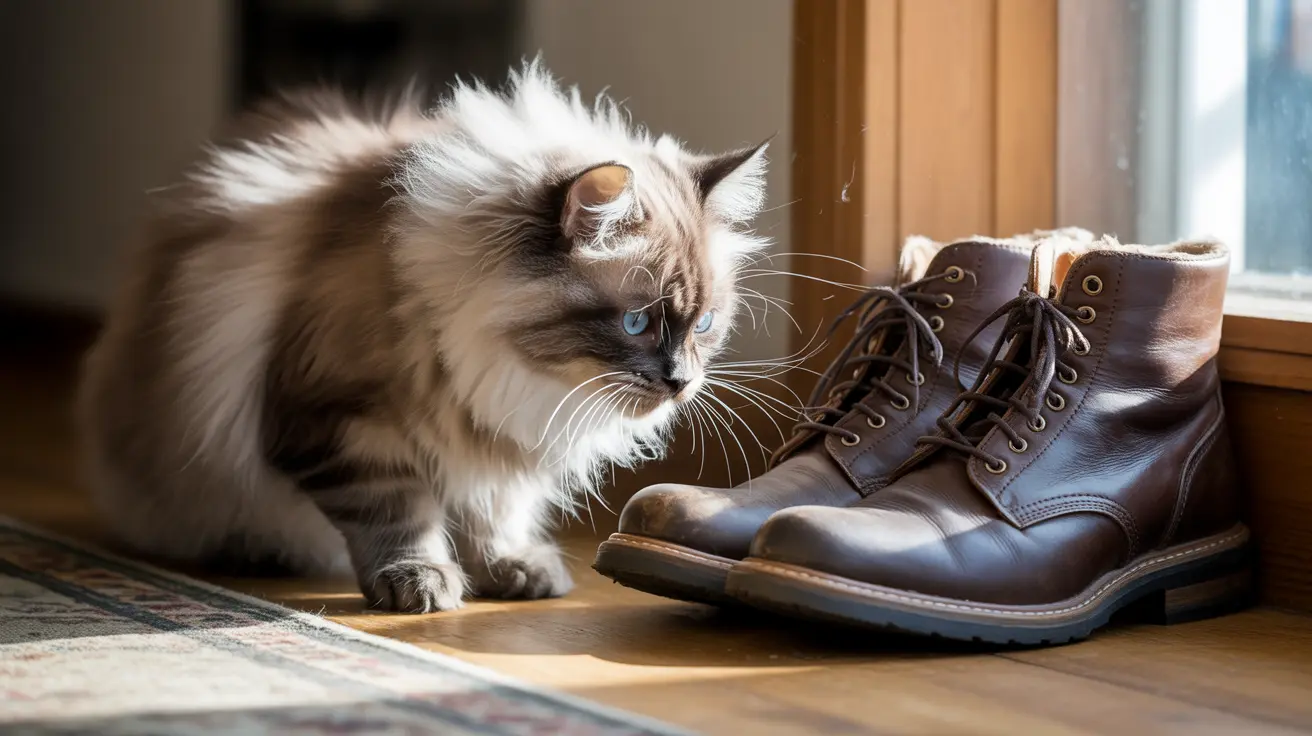Finding cat urine on your favorite pair of shoes can be both frustrating and concerning. This common behavioral issue affects many cat owners and often signals underlying medical conditions, stress, or environmental problems that need addressing. Understanding why your cat is peeing on shoes is the first step toward finding an effective solution.
In this comprehensive guide, we'll explore the various reasons behind this unwanted behavior and provide practical solutions to help protect your footwear while ensuring your cat's health and happiness.
Medical Causes: When Health Issues Lead to Inappropriate Urination
Before assuming your cat is acting out behaviorally, it's crucial to rule out medical conditions. Several health issues can cause cats to urinate outside their litter box:
Urinary Tract Problems
Urinary tract infections (UTIs), crystal formation, and bladder inflammation can cause pain and urgency, leading cats to urinate in unusual places. These conditions require immediate veterinary attention.
Chronic Health Conditions
Diabetes, kidney disease, and arthritis can affect your cat's ability to use the litter box properly. These conditions may cause increased urination or make it difficult for your cat to access their usual bathroom spot.
Behavioral Triggers Behind Shoe-Targeting
Stress and Anxiety
Cats often express stress through inappropriate urination. Common stressors include:
- Changes in household routine
- New pets or family members
- Moving to a new home
- Loud noises or construction
- Changes in their environment
Territorial Marking
Cats may urinate on shoes to mark their territory, especially if they smell unfamiliar scents on footwear brought in from outside. This behavior is more common in unneutered males but can occur in any cat.
Creating a Cat-Friendly Environment
Proper Litter Box Setup
Follow these essential guidelines for optimal litter box management:
- Maintain one box per cat plus an extra
- Clean boxes daily
- Place boxes in quiet, accessible locations
- Use unscented, clumping litter
- Ensure boxes are large enough for comfortable use
Stress Reduction Techniques
Implement these strategies to help reduce anxiety:
- Install Feliway diffusers
- Provide hiding spots and vertical spaces
- Maintain consistent daily routines
- Create quiet zones away from household traffic
Effective Cleaning and Prevention Strategies
Proper cleaning is crucial to prevent repeated incidents:
Immediate Clean-up Protocol
- Use enzymatic cleaners specifically designed for cat urine
- Thoroughly clean affected shoes as soon as possible
- Allow shoes to dry completely before wearing
- Store shoes in closed closets or containers
Long-term Prevention
- Keep shoes in closed rooms or storage containers
- Address underlying medical or behavioral issues
- Maintain consistent litter box cleaning routines
- Consider professional behavioral consultation if problems persist
Frequently Asked Questions
Why is my cat peeing on shoes instead of using the litter box?
Cats may pee on shoes due to medical issues, stress, territorial marking, or litter box problems. Have your vet rule out health concerns before addressing behavioral causes.
Could a medical issue be causing my cat to pee on shoes?
Yes, several medical conditions, including UTIs, kidney disease, and diabetes, can cause inappropriate urination. Always consult your veterinarian when this behavior starts suddenly.
How can I effectively clean and remove cat urine odor from my shoes?
Use enzymatic cleaners specifically designed for cat urine, and clean affected areas immediately. For washable shoes, use vinegar or enzyme cleaner in the washing machine. For leather or delicate materials, use appropriate specialty cleaners.
What environmental or stress factors make cats pee on shoes?
Changes in the household, new pets, moving, loud noises, or even the presence of outdoor cats can cause stress-related urination. Shoes may be targeted because they carry unfamiliar scents or provide an absorbent surface.
What steps can I take to prevent my cat from urinating on shoes?
Store shoes in closed containers or rooms, maintain clean litter boxes, address any medical issues, reduce environmental stress, and consider using pheromone products to create a calming environment for your cat.
Remember, addressing this behavior requires patience and a comprehensive approach. By understanding the root cause and implementing appropriate solutions, you can help your cat return to proper litter box habits while protecting your shoes from future incidents.






